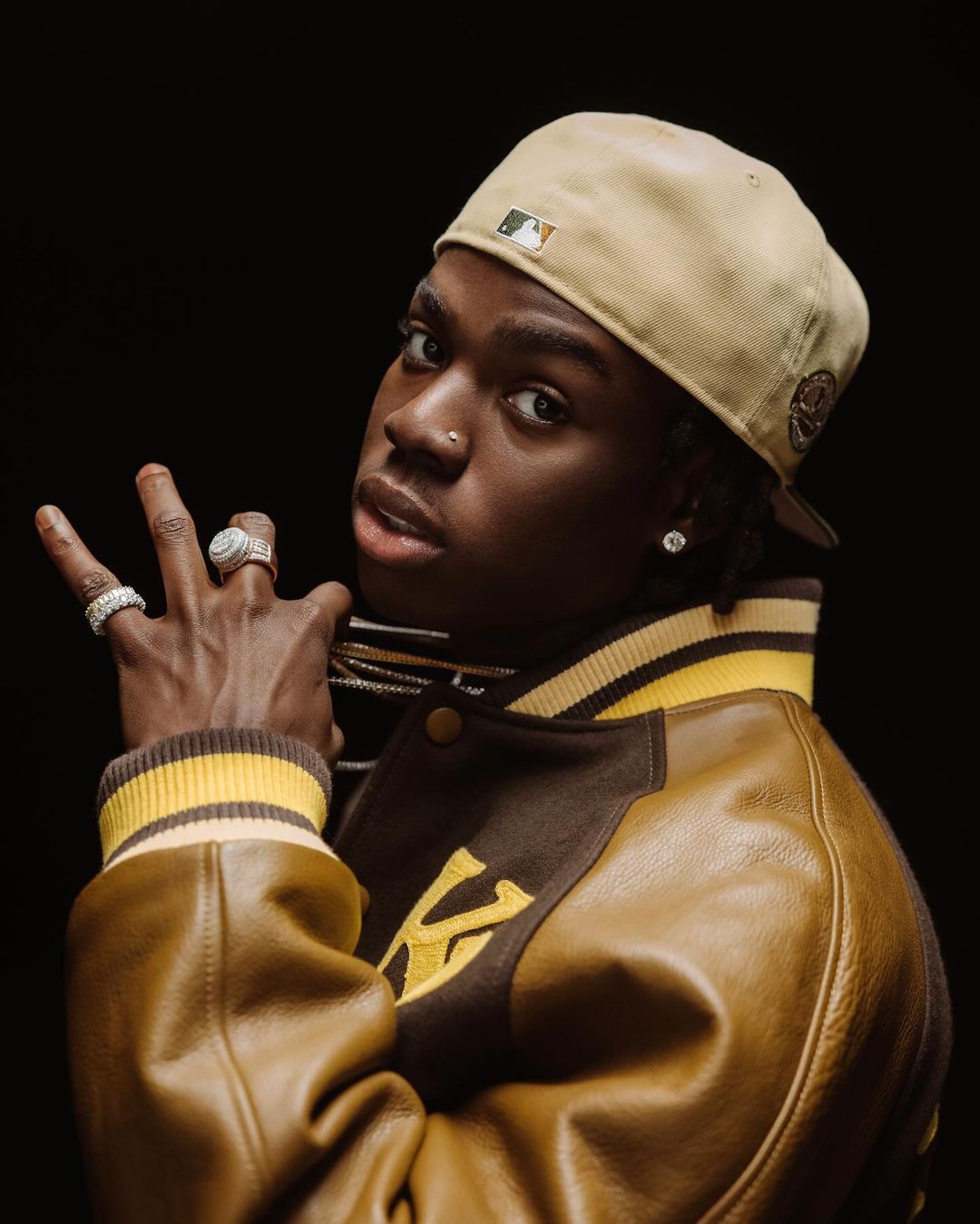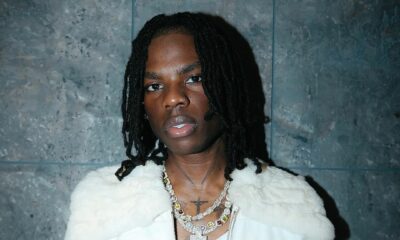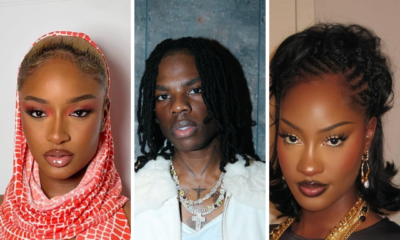Features
Rema Is Making a Statement
If Rema requests a seat on the “Nigeria Big Artists” table, he’s not overreaching. He has done the work, claimed his space, and is leading the charge in keeping Afrobeats firmly where it belongs. People go para, but what for?

In an interview, Rema implied that the “HEIS” album is not exactly to gain international milestones. Rather, it serves as a bold statement to gatekeep Afrobeats which, according to him, is becoming lost into the hands of the foreigners. During the album listening party, he asked, who else in the world would make a song like “Ozeba” or “Azaman?” – songs steeped in the unique rhythms and textures of Benin culture. And he’s right. Of course, due to his influence, the album will reach an international audience, and appear on multiple charts in different countries, but it doesn’t take the very essence he made the album; to make a statement that Afrobeats belongs to where it comes from, not anywhere else. He said it is why “Benin Boys” with Shallipopi was the first song released off the album. It is the first time Rema would feature an artist. And who else but his kinsman, his Benin man?
Over the years, Rema has, through his songs, shown us that he’s not just an artist; he’s a movement. He’s had to grow quickly from the moment he got his breakthrough with “Dumebi” and the growth is not only evident in his physical appearance or songs, but in the message he passes. His breakout success with “Calm Down” wasn’t just about chart numbers; it was his chance to articulate a movement. With this platform, he went all in, expanding his message and ambition. We got a glimpse of that during the last Headies Award when he gave a thought-provoking speech on the multiplicity of Afrobeats. When “Afrobeats to the World” became a conscious movement sometime in 2018/19, every emerging artist started labelling their genre of music. Afro-this, Afro-that. In his speech, Rema said while we’re trying to separate ourselves from Afrobeats, which is the origin, “we’ll all meet at the Afrobeats award.”
However, Rema knows he needs evidence to prove his point. Afrobeats is an African genre that draws sounds from everywhere but also maintains its African roots. While every other artist feels boxed to be categorised under Afrobeats during awards and shows, Rema seems to embrace it and at the same time, prove to everyone that no one else can make an Afrobeats song except an Afrobeats artist. The first introduction to this is from the “Ravage EP”, where the gratification of himself shines through the entire EP. In an interview with Apple Music, he said the EP is “like an outburst [from] inside me that I’ve held for too long. It’s not fuelled with negativity, rather it’s fuelled with drive, passion and destiny. What people will hear on this project is a little exhale from me, only it comes with fire.” He sealed the point with “HEIS”.
As Nigerian artists gain global recognition, there’s a growing concern that their music may become out of reach for local fans, both in terms of accessibility and affordability. Once Nigerian artists attain global feat, they often prioritise international audiences over their local fans. Business-wise, reasonably so. As leading Afrobeats voices set the trend, emerging artists follow suit. After releasing an album, Nigerian artists tour the world without performing in Nigeria. They claim their music is for Nigerians, but ticket prices are often too high for the average person to afford, or they simply don’t perform in their home country.
This is why Rema is making a conscious effort to own what belongs to him. To further strengthen his movement, he held a homecoming show in Benin. I believe he couldn’t feel any more prouder, standing on the stage and thousands of people from his hometown singing back, word for word, his music. This is what Afrobeats to the world should mean; when the music is distributed across the world but still holds firm at home.
Nigerian music journalist, Joey Akan, often uses his platform to advocate for the gatekeeping of Afrobeats so it doesn’t get stolen from us. He once tweeted, “Gatekeep Afrobeats today. We can collect the money from abroad and push our artist but that will eventually dry up when other artists that aren’t native to Africa hack the thing.” This, again I believe, is Rema’s mission; to make Afrobeats firm where it belongs while also pushing it to the world.
Rema has, in the little years he’s been around, profoundly contributed to Afrobeats. He has broken and set unprecedented records. He is the first African artist to hit one billion streams on Spotify. He has performed at the Ballon d’Or ceremony. If Rema requests a seat on the “Nigeria Big Artists” table, he’s not overreaching. He has done the work, claimed his space, and is leading the charge in keeping Afrobeats firmly where it belongs. People go para, but what for?




















